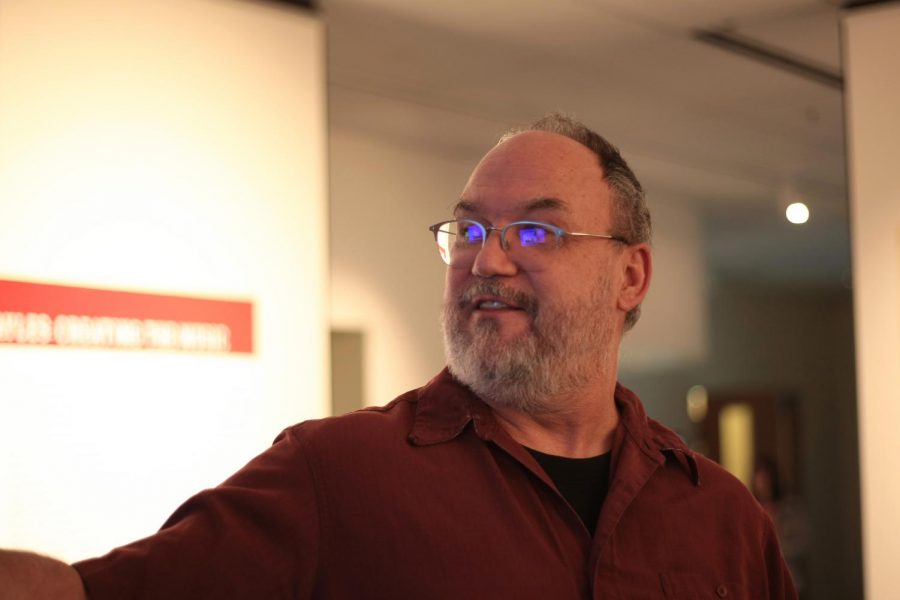Library honors fight song 100-year anniversary
Song written by music majors, brings more spirit on campus
BEN SCHUH | THE DAILY EVERGREEN
University archivist Mark O’English talks about the WSU fight song’s impact Tuesday at an exhibit in WSU libraries Manuscripts, Archives and Special Collections.
January 23, 2019
A new exhibit at the Holland/Terrell Libraries showcases the origins of the WSU fight song.
Phyllis Sayles and Zella Melcher, who were both music majors at Washington State College, wrote the fight song to bring more spirit to campus after World War I.
“There were lots of letters in the Evergreen decrying the lack of spirit amongst the student body,” University Archivist Mark O’English said. “They got together and came up with [the song] we know today.”
O’English said the song was published in the Evergreen on Feb. 26, 1919, after approval from the Associated Students of the State College of Washington, now known as ASWSU.
“They met on Feb. 20 and everybody loved it,” he said. “On Feb. 26 [it was posted] in the Evergreen.”
O’English said the song will turn 100 years old next month. It has remained one of the most memorable parts of WSU’s history.
“It’s certainly one of the things you think of when you think of WSU. Everybody knows the fight song,” he said. “I imagine if you put a list of the top 20 fight songs that people would recognize, ours would be there.”
O’English said Sayles and Melcher were both seniors at WSC at the time the song was written. Sayles wrote the music and Melcher wrote the words for a senior class project.
He said Sayles and Melcher were also the founding members of the Mu Phi Epsilon music fraternity at WSC, which is still around today.
Melcher was initially a home economics major and the president of the Pan-Hellenic Council, as well as a member of the Pi Beta Phi sorority, according to a plaque in the exhibit.
After she graduated, she became a teacher. She later died from multiple myeloma at the age of 41.
Sayles wrote music that was used nationally for her sorority, Alpha Chi Omega, according to a plaque. Upon graduation, she became a high school and college English teacher, as well as a social activist.
During World War II, she opened her barn to a Japanese-American student’s family to hide their belongings until after the war. She passed away in 1971, days before her 75th birthday.
The exhibit will be open at the WSU Manuscripts, Archives and Special Collections room in the library. It will be open Monday through Friday 8:30 a.m. to 4:30 p.m. throughout April.
This story has been updated to correct statements about Sayle opening her barn to allow a Japanese-American family to hide their belongings, not to hide themselves.









